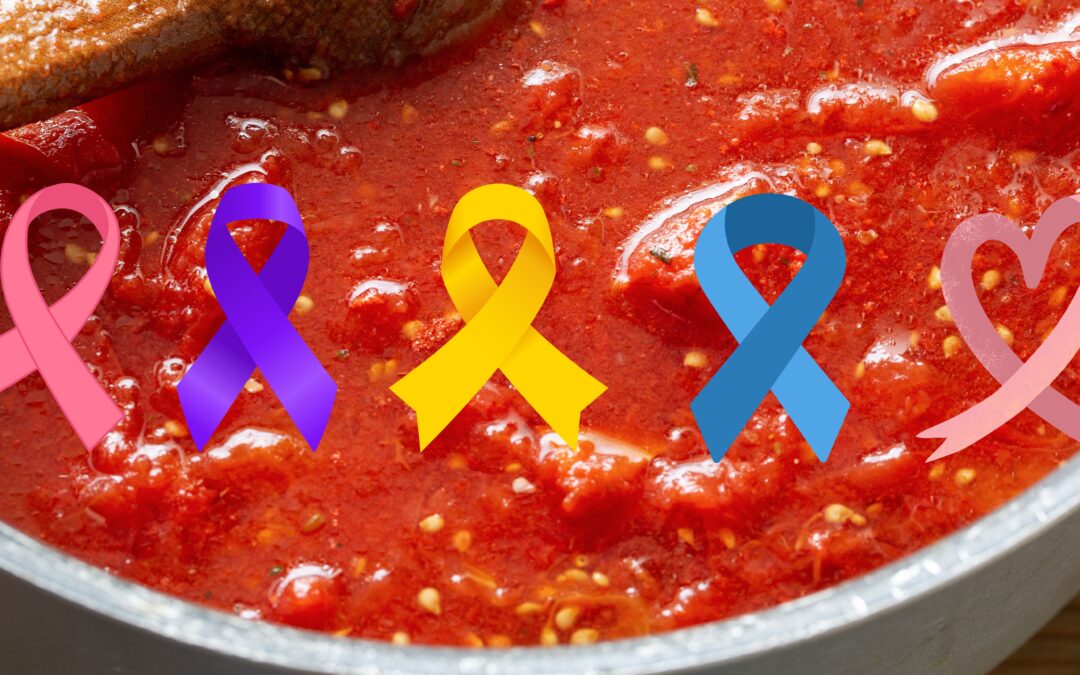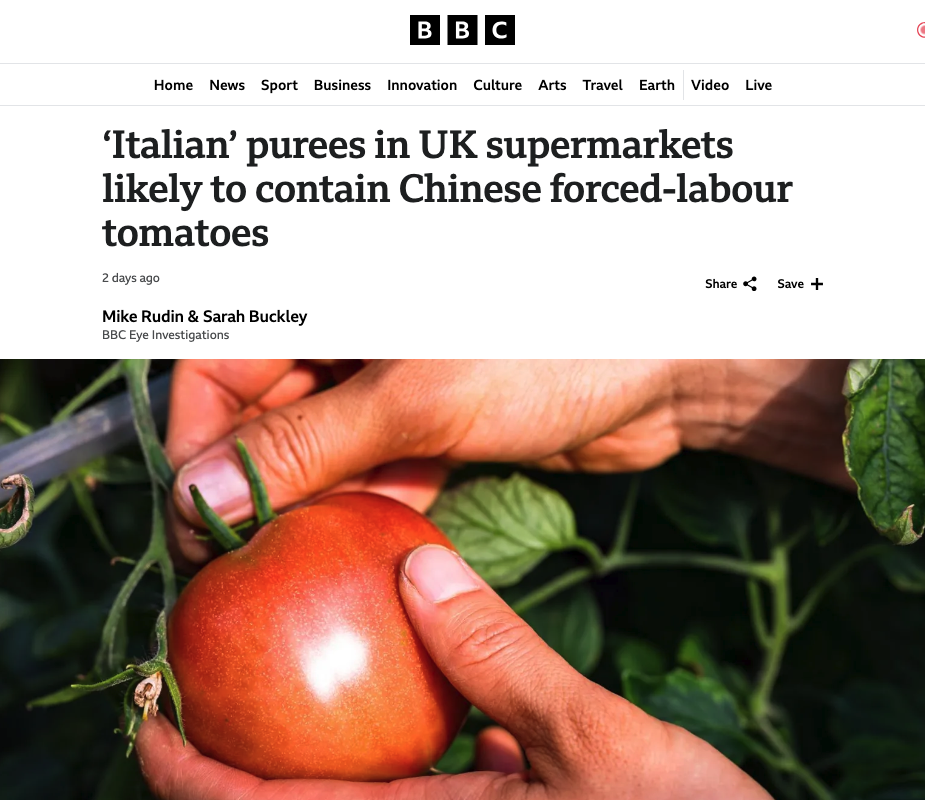
The Cancer-Fighting Power of Processed Tomato Products
Cancer and Its Effects
Cancer is a condition where abnormal cells grow uncontrollably, often forming tumors and sometimes spreading to other parts of the body. It can affect nearly any organ or tissue and comes in many forms, such as breast, prostate, lung, and colon cancer. Globally, cancer remains one of the leading causes of death, profoundly impacting millions of lives each year.1 While medical advancements have improved treatment options, diet and lifestyle play a critical role in both prevention and recovery.2,3 Among dietary options, processed tomato products stand out as surprisingly powerful allies in the fight against cancer.4
The Cancer-Fighting Power of Processed Tomato Products
When it comes to cancer prevention and treatment, the humble tomato might not immediately come to mind. However, processed tomato products—such as tomato paste, sauce, and juice—are emerging as nutritional powerhouses with remarkable potential to support health and combat cancer.5 Let’s explore why these staples of your pantry deserve a closer look.
Rich in Lycopene: A Potent Antioxidant
The primary claim to fame for processed tomato products is their high lycopene content. Lycopene is a carotenoid—a type of natural pigment—that gives tomatoes their red color. More importantly, it acts as a powerful antioxidant, neutralizing harmful free radicals that can damage cells and lead to cancer initiation, or carcinogenesis.5-7
Research suggests that lycopene may play a role in reducing the risk of certain types of cancer, including:
- Prostate Cancer: Studies show a strong link between lycopene intake and reduced prostate cancer risk. Consuming processed tomato products, in particular, on a weekly basis have demonstrated significant benefits in supporting prostate health and lowering the risk of cancer.6-9
- Breast Cancer: Lycopene may also reduce the risk of breast cancer by inhibiting the growth of cancer cells and promoting apoptosis (programmed cell death).6 Additional research shows that lycopene may play a role in inactivating a growth factor essential for breast cancer development.10
- Stomach Cancer: Research indicates potential protective effects of antioxidant-rich tomato products. Lycopene, vitamin C, and β-Carotene fight damage to cells and their DNA. The nutrients in tomato products may even play a role in altering cancer gene expression and reducing cancer cell proliferation.10,11
Processed is Better
Interestingly, processed tomato products are often more beneficial than fresh tomatoes when it comes to cancer prevention. Why? The heat used during processing breaks down the tomato’s cellular structure, making lycopene more bioavailable—easier for your body to absorb.10
For example, tomato paste, juice, and sauces contain much higher concentrations of lycopene than raw tomatoes. Cooking tomatoes with a healthy fat like olive oil further enhances lycopene absorption.10,12
Anti-Inflammatory and Immune-Boosting Properties
Chronic inflammation is a key factor in cancer development.6 Processed tomato products contain not only lycopene but also other bioactive compounds, such as vitamin C, vitamin E, and polyphenols, which help reduce inflammation. Additionally, these nutrients support a healthy immune system, which is critical for preventing and fighting cancer.5,6,8,10
Supporting Cancer Treatment
For individuals undergoing cancer treatment, processed tomato products can be a valuable dietary addition:
- Nutrient Density: They are packed with vitamins and minerals that help maintain strength and support recovery.5,8,11,12
- Digestive: Cooked tomato products may be easier on the digestive system, making them a suitable choice for individuals dealing with treatment-related gastrointestinal side effects. Additionally, tomatoes have been shown to support gut health, a vital component in reducing inflammation and promoting overall well-being.10
- Versatility: From soups to sauces, processed tomatoes are an easy way to enhance meals and boost overall nutrition.
Other Dietary and Lifestyle Habits for Cancer Prevention
In addition to incorporating processed tomato products into your diet, adopting other healthy habits can further reduce your cancer risk2,3:
- Eat a Balanced Diet: Focus on a plant-based diet rich in fruits, vegetables, whole grains, legumes, nuts, and seeds. These foods are high in fiber, antioxidants, and phytochemicals, which help protect cells from damage.
- Limit Processed and Red Meats: High consumption of processed meats like bacon and sausage has been linked to an increased risk of colorectal cancer. Opt for lean protein sources like fish, poultry, or plant-based alternatives.
- Avoid Excess Sugar and Alcohol: Excessive sugar intake can contribute to obesity, a known cancer risk factor. Similarly, limiting alcohol consumption reduces the risk of cancers such as breast and liver cancer.
- Maintain a Healthy Weight: Obesity is a significant risk factor for several types of cancer, including breast, colon, and pancreatic cancer. Regular physical activity and mindful eating can help manage weight.
- Stay Active: Aim for at least 150 minutes of moderate aerobic activity each week. Exercise improves immune function, reduces inflammation, and regulates hormones that can impact cancer development.
- Don’t Smoke: Smoking is the leading preventable cause of cancer, responsible for cancers of the lungs, throat, and mouth, among others. Quitting smoking is one of the most effective ways to lower your cancer risk.
- Protect Your Skin: Use sunscreen and wear protective clothing to reduce the risk of skin cancer from UV radiation.
- Regular Screenings: Early detection through routine screenings, such as mammograms or colonoscopies, can significantly improve outcomes for certain types of cancer.
Incorporating Processed Tomato Products into Your Diet
Adding processed tomato products to your diet is simple and delicious. Here are a few ideas:
- Use tomato paste as a base for hearty soups and stews.
- Add marinara sauce to whole-grain pasta or veggie noodles.
- Sip on a glass of low-sodium tomato juice as a snack.
- Spread a layer of tomato puree on homemade pizza for a healthful twist.
Conclusion
Processed tomato products are much more than a pantry staple—they’re a potent tool in the fight against cancer. Rich in bioavailable lycopene and other beneficial nutrients, these versatile foods can help reduce cancer risk, support treatment, and enhance overall health.8,11,12
By embracing the goodness of processed tomatoes, you’re not only adding flavor to your meals but also investing in long-term wellness. So, stock up on tomato paste, sauce, and juice, and let these nutrient-packed foods become a delicious part of your health journey.
References
- Cleveland Clinic. Cancer. Reviewed August 19, 2024. Accessed October 30, 2024. https://my.clevelandclinic.org/health/diseases/12194-cancer
- Cooke D. 7 Lifestyle tips to reduce your cancer risk. UC Davis Health. Published February 22, 2024. Accessed November 1, 2024. https://health.ucdavis.edu/blog/cultivating-health/7-lifestyle-tips-to-reduce-your-cancer-risk/2024/02
3. American Cancer Society. American Cancer Society Guideline for Diet and Physical Activity for Cancer Prevention. Accessed November 1, 2024. https://www.cancer.org/cancer/risk-prevention/diet-physical-activity/acs-guidelines-nutrition-physical-activity-cancer-prevention.html
- American Cancer Society. What is Cancer? Reviewed July 25, 2024. Accessed October 30, 2024. https://www.cancer.org/cancer/understanding-cancer/what-is-cancer.html
- Jiménez Bolaño DC, Insuasty D, Rodríguez Macías JD, Grande-Tovar CD. Potential use of tomato peel, a rich source of lycopene, for cancer treatment. Molecules. 2024; 29(13):3079. https://doi.org/10.3390/molecules29133079
- Imran M, Ghorat F, Ul-Haq I, et al. Lycopene as a Natural Antioxidant Used to Prevent Human Health Disorders. Antioxidants (Basel). 2020;9(8):706. doi:10.3390/antiox9080706
- Basu, A., Imrhan, V. Tomatoes versus lycopene in oxidative stress and carcinogenesis: conclusions from clinical trials. Eur J Clin Nutr. 2007;61:295–303. https://doi.org/10.1038/sj.ejcn.1602510
- Moran NE, Thomas-Ahner JM, Wan L, Zuniga KE, Erdman JW, Clinton SK. Tomatoes, lycopene, and prostate cancer: What have we learned from experimental models? J Nutr. 2022;152(6):1381-1403. https://doi.org/10.1093/jn/nxac066
- Fraser, G.E., Jacobsen, B.K., Knutsen, S.F. et al. Tomato consumption and intake of lycopene as predictors of the incidence of prostate cancer: The Adventist Health Study-2.Cancer Causes Control. 2020; 31:341–351. https://doi.org/10.1007/s10552-020-01279-z
- Collins EJ, Bowyer C, Tsouza A, Chopra M. Tomatoes: An Extensive Review of the Associated Health Impacts of Tomatoes and Factors That Can Affect Their Cultivation. Biology (Basel). 2022;11(2):239. doi:10.3390/biology11020239
- Mazidi M, Ferns GA, Banach M. A high consumption of tomato and lycopene is associated with a lower risk of cancer mortality: Results from a multi-ethnic cohort. Public Health Nutrition. 2020;23(9):1569-1575. doi:10.1017/S1368980019003227
- Carvalho GC, de Camargo BAF, de Araújo JTC, Chorilli M. Lycopene: From tomato to its nutraceutical use and its association with nanotechnology. Trends in Food Science & Technology. 2021;118:447-458. doi:10.1016/j.tifs.2021.10.015

Recent Comments